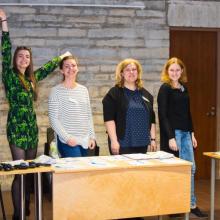Tartu Ülikool
Country: EE
Partner budget: 93.565 EUR
Amount of ERDF funding: 79.530 EUR ERDF

P4 Skilled and socially inclusive region
4.1. More people benefiting from stronger Central Baltic communities
Central Baltic
01.09.2015 - 31.08.2017
204.865 EUR
167.241 EUR ERDF
The PIM project aims at supporting bilingual education for children in Russian-speaking minority groups in Estonia, Finland and Latvia by developing parent involvement models for bilingual learning process.
The main responsibility in bilingual education in the partner countries has been on the teachers and schools. The project will enable the Russian-speaking school communities to improve their home-school cooperation. In practice the project will combine traditional models of parent involvement with bilingual education specific themes and methods. The project will also take into account the context of old and new immigrants.
As a result of the project home-school cooperation and awareness about multicultural education are both expected to increase. The process, in turn, will have a direct impact on broader Russian-speaking communities gathered around the schools in the same town, and the same region. Through the schools, the changes can be initiated from the grass root level, but the overall influence will have an impact on the whole society.
Country: EE
Partner budget: 93.565 EUR
Amount of ERDF funding: 79.530 EUR ERDF
Country: FI
http://www.helsinki.fi/yliopisto/
Partner budget: 68.940 EUR
Amount of ERDF funding: 51.705 EUR ERDF
Country: LV
Partner budget: 42.360 EUR
Amount of ERDF funding: 36.006 EUR ERDF